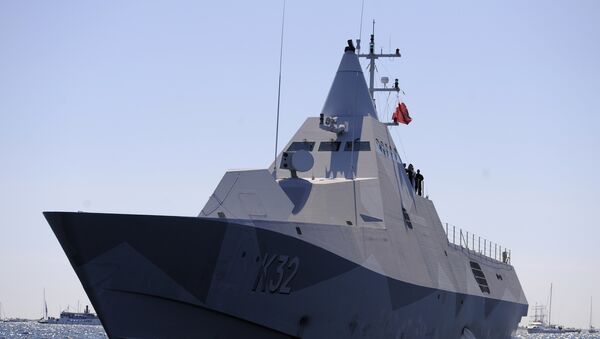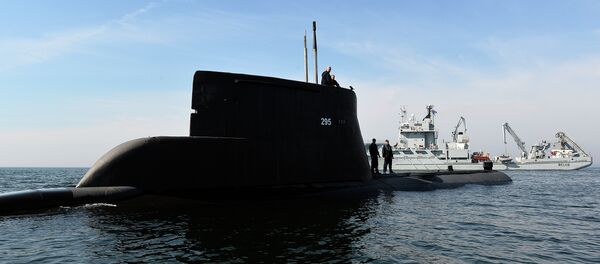"We practice developing the Air Force's abilities," Helene Nyberg, Director of Communications at Blekinge Wing, said, as quoted by local news outlet Kalmar 24.
Meanwhile, locals were warned of extra aircraft noise, as well as Navy ship's appearance near the coast. Additionally, Finland is expected to contribute five Hornet fighter jets and 50 servicemen.
Viisi Hornetia Visbyhyn Ruotsin ilmavoimien FVÖ 16 —ilmaoperaatioharjoitukseen 2.–6.9. https://t.co/cj93wexT6r pic.twitter.com/u95goyH76N
— Ilmavoimat (@FinnishAirForce) August 19, 2016
"We will use the established routes, but the exercise will be more intense than usual. Also, we will also start from bases that are not used every day, so it will be felt," Nyberg said.
Given that, it may seem peculiar that the report dismisses the chance of a Russian attack on Sweden as "practically impossible." Another "unlikely" scenario is that Sweden becomes embroiled in a military conflict following a Russian attack on NATO members Estonia, Latvia and Lithuania.
In the report, Russia is estimated to have the military capability to within a couple of days extend its military control over the Baltic states. Russia could then, or even at an earlier stage, proceed to place air defense systems in Swedish territory, including the island of Gotland, to stop NATO flights over the Baltic Sea.
The report also pointed out "significant shortcomings" in Swedish defense, despite fighter jets and submarines. Sweden is therefore dependent on outside help, whereas American reinforcements with heavy ground forces are expected to arrive no sooner than in three weeks.
According to the report, a Swedish NATO membership, which may be achieved within "12-15 months," is nevertheless "no shortcut" to solving Sweden's defense shortcomings. Another problem which could arise should the country join NATO would be how to meet the bloc's requirement of defense spending equivalent to 2 percent of the GDP, which at present is only met by five out of the bloc's 28 member states.
This is not the first report by Swedish think-tanks or government commissions that cautiously advocate NATO membership. Of late, Sweden, which has maintained neutrality and a non-alignment policy since 1812, has come under immense pressure from NATO lobbyists. Despite its officially neutral stance, Sweden does contribute to various NATO and EU battlegroups and is involved in international organizations.





